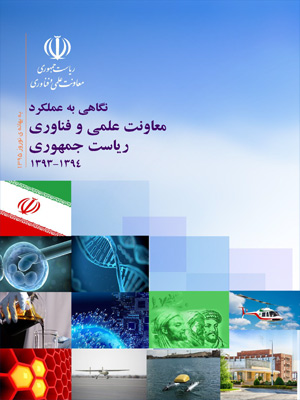

In the fourth decade of the blessed life of the Islamic Revolution, known as “decade of progress and justice”, the necessity of more attention to human resources in the development programs of the country and application of this resource has been proved to all enhancement experts of the country and has been turned into a major discourse among Iranians with regard to the economic, social and political evolutions at national and international levels. Moving from an oil-based economy toward a knowledge-based and export-oriented economy is the main policy of the government of prude and hope, and all managers of the 12th governments have dedicated efforts to eliminate the oil economy. Experts believe that the realization of goals and policies requires a significant change in the cultural, social, economic, and even science and technological viewpoint, attitude, priorities, and mechanisms of the country. In this regard, the main mission of the Vice-Presidency for science and technology affairs as an ultra-sectoral unit is redefining the views and mechanisms of two major concepts of “knowledge-based economy and economy of resistance”. On this path, despite all structural, cultural, and administrative difficulties and complications in the path of formation of knowledge-based economy, attempts have been made to define comprehensive policies and attract the participation of key stakeholders in the government, public and private sectors to take effective steps toward the formation of innovation ecosystem in the economic and social space of the country. In this context, one of the policies is completing tools to support the commercialization of science and technology and the formation and growth of knowledge-based companies. Along with this policy, stimulating demand and marketing for these companies and completing various commercialization chains (e.g., financing, taxes, customs, insurance, and export standards and services) Is being followed up and effective measures have been taken in this regard. Some key areas can be assessed to review the activities of the Vice-Presidency for science and technology affairs in the past two years. First of all, the development of strategic and key technologies, especially the convergent technologies, is being seriously followed up in the form of national priorities and the comprehensive scientific map of the country. The second area focuses on the activation of all capacities of the law to support knowledge-based companies and institutions and the entrance of these companies to the field of economy. Development of technology commercialization, an increase of technology diplomacy power, development of the culture of the knowledge-based economy and active participation in policy-making and culture-building in the field of science, technology, and innovation are among other key activities of the Vice-Presidency.


